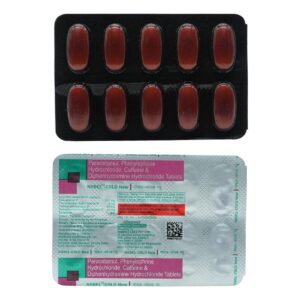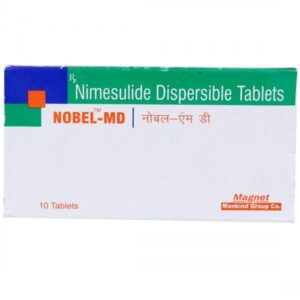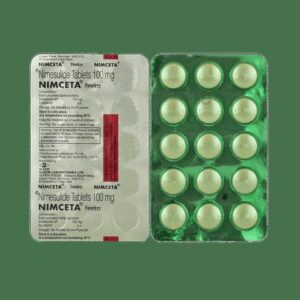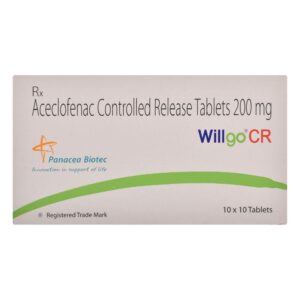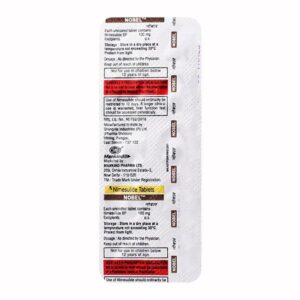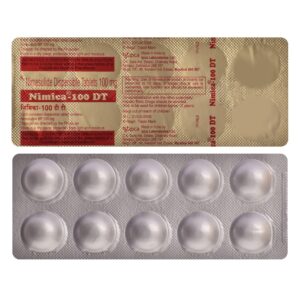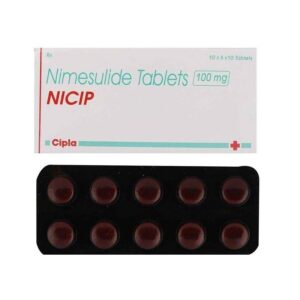NIMESULIDE
NIMESULIDE: Nimesulide is a nonsteroidal anti-inflammatory drug (NSAID) that is commonly used for the treatment of pain and inflammation associated with various conditions such as osteoarthritis, rheumatoid arthritis, and acute musculoskeletal injuries. It is available in tablet or suspension form.
The mechanism of action of nimesulide involves inhibiting the enzyme cyclooxygenase (COX), which plays a role in the production of prostaglandins that are responsible for pain and inflammation. By inhibiting COX, nimesulide helps to reduce pain and inflammation associated with different conditions.
The recommended dose of nimesulide depends on the condition being treated, the severity of symptoms, and individual patient factors. Typically, the initial dose for adults is 100 mg twice daily. However, it is important to follow the specific instructions provided by the prescribing doctor or the information on the medication packaging.
Common side effects of nimesulide may include gastrointestinal disturbances such as nausea, vomiting, stomach pain, and diarrhea. There may also be allergic reactions leading to rash, itching, or swelling. In rare cases, more serious side effects such as liver toxicity have been reported, although this is considered rare. It is important to notify a healthcare professional if any concerning or severe side effects occur while taking nimesulide.
It is important to note that nimesulide should be used with caution, or avoided altogether, in certain populations such as individuals with a history of gastrointestinal ulcers, liver or kidney disease, and those who are allergic to NSAIDs. It is also not recommended for use in pregnant women or children under the age of 12.
As with any medication, it is essential to follow the prescribed dose and duration of treatment and to consult a healthcare professional for further guidance and monitoring.



